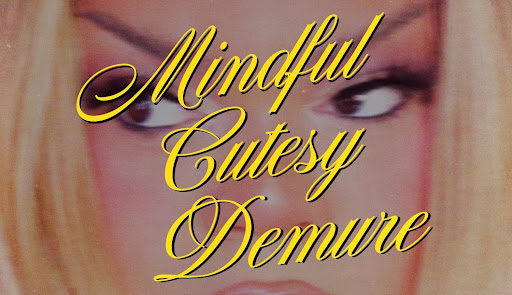Don’t be too loud! Don’t be too confident! Don’t be too insecure! But what can you be? You can be mindful. You can be demure.
Following the politicization of manners in the 17th-century, etiquette has become a fundamental part of modern society. Etiquette and manners has had an even larger impact on the lives and public interactions of women for centuries.
In the 1920s, Emily Post’s Etiquette became the primary reference for how a proper, well-behaved woman should act. In this book, Post addresses etiquette as a code of ethics, which she refers to as honor. Since then, women have worked to reclaim the meaning of etiquette or honor.
From the 90s and 2000s riot girl to the 2010s millennial girlboss, several different agendas have been initiated to secure the grasp on women’s roles in society. In part of this, many feminist or identifying women of today have turned these radical teachings of etiquette into a satirical comedy.
This social media trend started with beauty influencer Jools Lebron, where she describes her makeup look for work as being “very demure, very mindful”. This catapulted the word “demure” into the recommended feeds of millions of social media users.
In an episode of the 2000s Warner Bros. family comedy-drama Gilmore Girls, main character Rory Gilmore is asked if she wants anything to drink, to which she replied, “Just a club soda.” Rory’s grandmother, Emily, thereafter regards her by saying, “So demure. Isn’t she demure?” The feminist television show previously aided to facilitate a community of enjoyers on Tik Tok, so the retrieval of this scene only furthered the rise in use of the word.
Demure is an adjective meaning decorous; modest; reserved. Within the context of etiquette and female gender roles, many women believe that they should be quiet and take up as little space as possible in different social landscapes. Demure is used in tandem with words like “cutesy” or “mindful”, allowing women to justify femininity or share moments of confidence with one another.
While this connotation can still be gathered, many began using it as a joke or a way to comedically express their confidence or femininity in their outfits, makeup, or hair.
Others have used it to show off their thin or petite nature, their mannered and polite behaviors, or their femininity over another woman’s lack thereof, which proved to be a common theme over the last thirty years in different public forums and different trends.
However, most managed to find a central meeting place and use the word to make their experiences and thoughts more relatable or increase virality by using the most popular buzzwords of the week.
Though the phrase garnered insane public attention, it’s already begun to wear itself out. The Tik Tok hashtag “very demure” accumulated 72-thousand uploaded videos. Popular creator Noah Miller responded to the trend and voiced his fatigue of the overused word. This says a lot more about trend cycles and the virality market than it does about the annoyance of the word itself.
Notice how you read this article all the way to the end? Very mindful, very demure.









